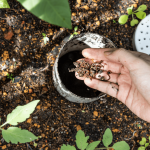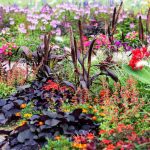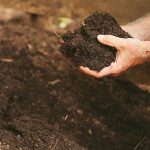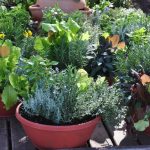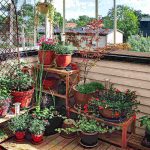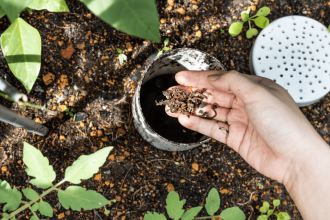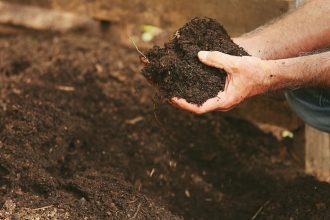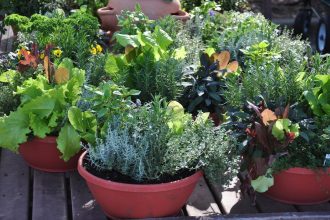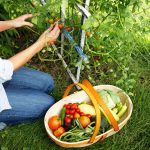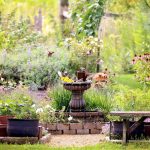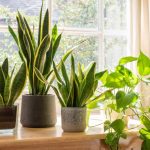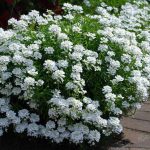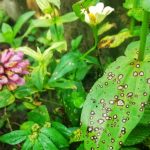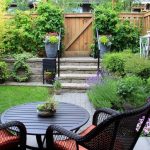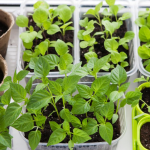In a world of synthetic chemicals and processed foods, there is a growing movement toward returning to the roots – quite literally. Organic gardening is more than just a trend; it is a way of life that celebrates the natural beauty and abundance of the Earth. Whether you have a green thumb or are just dipping your toes into the soil for the first time, understanding the basics of organic gardening is essential for cultivating a sustainable and thriving garden. Join us as we explore the fundamental principles and practices of this age-old tradition, and discover how you can nurture your garden with the utmost respect for the planet.

Understanding the Principles of Organic Gardening
Using natural methods to cultivate your garden can lead to healthier plants, better tasting produce, and a more sustainable environment. Organic gardening is all about working with nature rather than against it, focusing on building soil health, attracting beneficial insects, and reducing the use of synthetic chemicals. By following a few key principles, you can create a thriving organic garden that is both beautiful and productive.
One of the fundamental principles of organic gardening is soil health. Healthy soil is the foundation of a successful garden, providing essential nutrients for plants to grow and thrive. By adding compost, mulch, and other organic matter to your soil, you can improve its structure and fertility, leading to stronger, more resilient plants. Avoiding synthetic fertilizers and pesticides will also help maintain a balanced ecosystem in your garden, encouraging beneficial organisms like earthworms and beneficial bacteria to flourish.
Another important aspect of organic gardening is biodiversity. Planting a variety of crops and flowers in your garden helps to attract a wide range of beneficial insects, such as ladybugs and bees, which can help control pests naturally. Companion planting, where different plants are grown together to provide mutual benefits, can also help improve yields and reduce the need for chemical interventions. By working in harmony with nature, you can create a diverse and resilient ecosystem that supports a wide range of plant and animal life.
Choosing the Right Plants and Seeds for Your Organic Garden
When it comes to creating your own organic garden, the plants and seeds you choose are crucial to your success. It’s important to select varieties that are well-suited to your specific climate and growing conditions. Here are some tips on :
- Choose heirloom seeds: Heirloom seeds are open-pollinated, meaning they have not been genetically modified. They produce plants that are true to type, allowing you to save seeds from year to year.
- Consider native plants: Native plants are well-adapted to your local climate and soil conditions, making them more resilient and easier to grow organically.
- Look for disease-resistant varieties: Select plants and seeds that are known to be resistant to common pests and diseases. This can help reduce the need for chemical pesticides.
- Experiment with different varieties: Don’t be afraid to try new and unusual plants in your organic garden. You may discover some hidden gems that thrive in your garden!
| Plant/Seed Variety | Characteristics |
|---|---|
| Tomato | Disease-resistant, high-yielding |
| Zucchini | Fast-growing, prolific producer |
By taking the time to carefully select the right plants and seeds for your organic garden, you’ll be setting yourself up for a successful and bountiful harvest. Remember to provide your plants with plenty of organic matter, water, and sunlight to help them thrive naturally!
Implementing Natural Pest Control Methods
One effective way to keep pests at bay in your garden is by . By avoiding the use of harmful chemicals, you can create a healthier environment for your plants, wildlife, and yourself. Here are a few basic techniques you can use to keep pests under control organically:
- Encourage natural predators such as ladybugs, lacewings, and birds to help control pest populations.
- Introduce beneficial insects like nematodes or predatory mites to target specific pest species.
- Plant companion crops that repel pests or attract beneficial insects, such as marigolds, basil, or dill.
In addition to these methods, you can also try using homemade remedies like garlic spray or diatomaceous earth to deter pests from your garden. Remember, it may take some trial and error to find the right combination of techniques that work best for your specific garden and pest problems. By incorporating natural pest control methods into your gardening routine, you can create a more sustainable and environmentally-friendly space for your plants to thrive.
Creating a Sustainable Watering System for Your Organic Garden
When it comes to maintaining a successful organic garden, one of the key components is creating a sustainable watering system. By implementing efficient irrigation methods, you can ensure that your plants receive the right amount of water without wasting this precious resource.
One approach to consider is drip irrigation, which delivers water directly to the roots of your plants through a network of tubes and emitters. This method not only conserves water by minimizing evaporation and runoff but also helps prevent soil erosion and weed growth. Plus, it can be easily controlled with a timer, allowing you to automate the watering process and save time.
Another option is rainwater harvesting, which involves collecting and storing rainwater for future use in your garden. By setting up a rain barrel or a more elaborate rainwater harvesting system, you can reduce your reliance on municipal water sources and lower your utility bills. Plus, rainwater is naturally soft and free of chemicals, making it an ideal choice for watering your organic plants.
As you venture into the world of organic gardening, remember that patience and perseverance are key. By following the basics outlined in this article, you are well on your way to creating a vibrant and sustainable garden ecosystem. Happy gardening!


